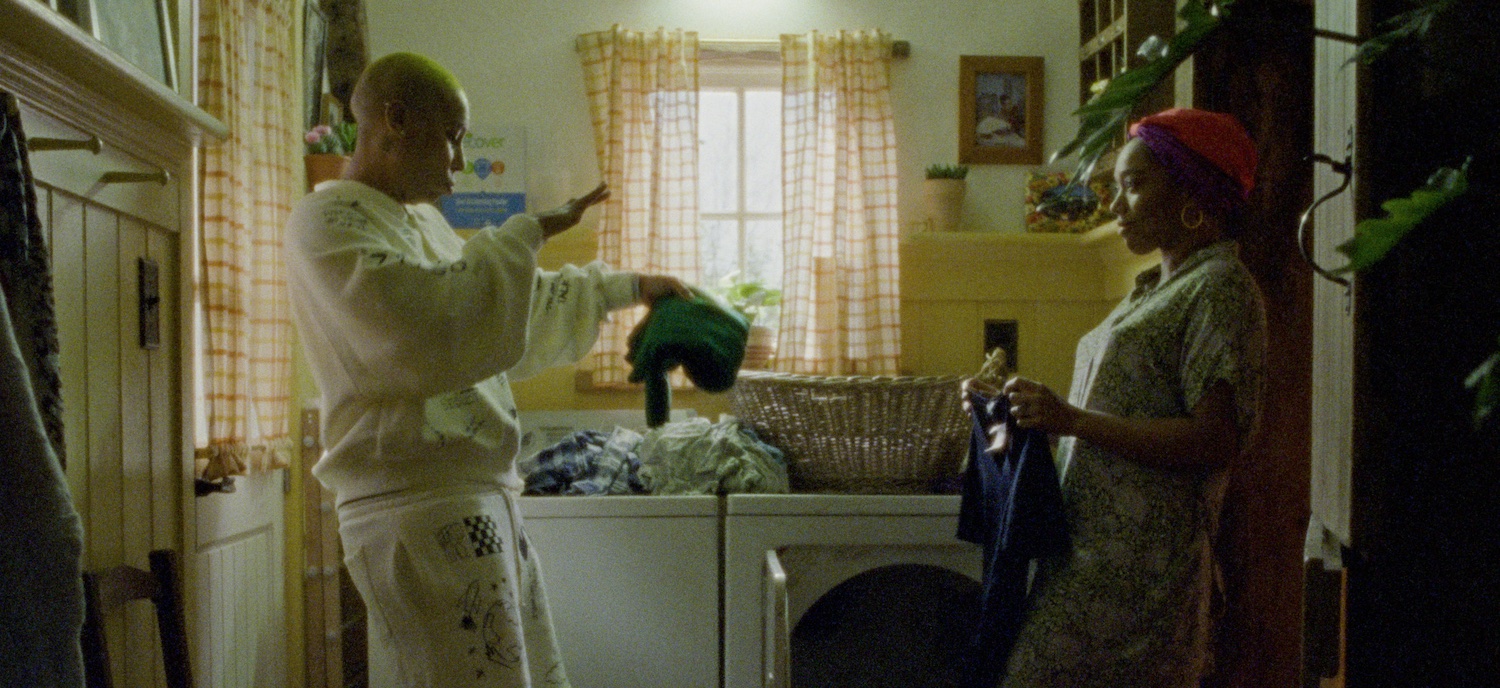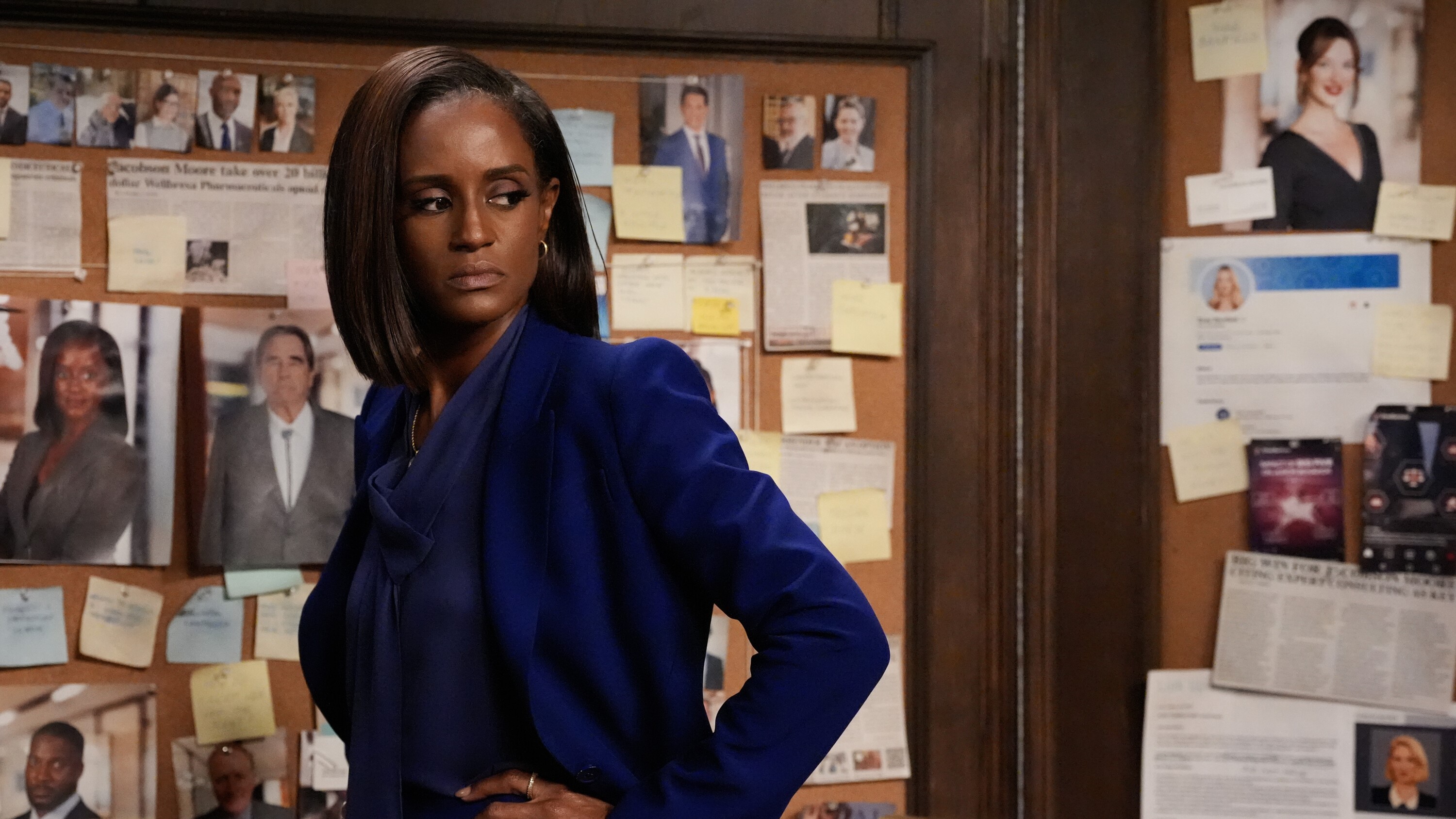What to Watch Verdict
Ansari trades his starring role for one behind the camera, while Lena Waithe and Naomi Ackie bring to vivid life the complexities and challenges of a relationship not often seen on screen.
Pros
- +
▪️ As Alicia, Ackie is the beating heart of the season, exploring the tumult of a troubled relationship — and a journey through single motherhood — with a vivid and heartbreaking power.
- +
▪️ Ansari's tableau-like directing allows the audience to feel like they're witnessing these characters' lives unfold in real time — a fly on the wall of their relationship.
Cons
- -
▪️ Ansari's diminished acting role leaves audiences hanging a bit after becoming invested in Dev during seasons 1 and 2.
- -
▪️ The abbreviated season doesn't give us quite enough — we love these characters and want more!
It’s hard to overstate how much growth and change has occurred on Master of None since its debut season in 2015. Created by Aziz Ansari and Alan Yang, the show originally explored some more sophisticated versions of sitcom concepts following the personal, professional and romantic lives of Dev Patel (Ansari) and his friends and colleagues. That minimizes both the complexity of those portrayals and the overall quality of the series, by when Season 2 debuted in 2017, the show leapt to incredible new heights, not just shifting locales to picturesque Italian cities but drawing upon a rich legacy of Italian cinema for much of its visual and narrative language. Additionally, the show premiered its best-ever episode, and one of the best episodes of television I’ve ever seen: “Thanksgiving,” which focuses on Dev’s childhood friend Denise (Lena Waithe), her sexuality and her coming out to her mother. The episode earned Waithe an historic Emmy for comedy writing, and exemplified the show’s deeply compassionate, inclusive and multicultural focus, both on the show and its creative team.
Since then, Waithe’s career has justifiably exploded, either writing or producing (or both) The Chi, Boomerang, Twenties and Queen & Slim among several other projects, as has Yang’s, while Ansari’s has not. Ansari’s personal life became a focus of polarizing speculation at the same moment that the #MeToo movement began gaining steam, prompting him to recede from the public eye except for making a stand-up special in 2019 and some life dates leading up and supporting that special. However that incident may have affected his on screen participation in Master of None, it’s safe to say that Season 3 upholds the high quality of the previous two, and explores the world of its characters with a clarity and an empathy that makes for some incredibly powerful and profound television.
Across its five episodes, Season 3, “Moments In Love,” almost exclusively looks at the life of Waithe’s Denise, now a successful novelist and happily married to Alicia (Naomi Ackie). Ansari appears twice as Dev during the season, in the first chapter as he visits Denise’s upstate New York house for dinner, and then later after she and Alicia are having problems. Suffice it to say that these characters have grown in some ways, and not in others; Dev's career and romantic prospects don't align with the cliffhanger ending of Season 2, but Denise is thriving — perhaps slightly to the exclusion of her longtime friend, as well to the deeper needs of her partner. When she and Alicia decide to try and have a baby, it exposes the faults that they didn’t know they had, exacerbating the differences between the couple’s individual levels of success, and putting their respective commitment to raising a child under a merciless spotlight.
The first episode details this attempt, which tragically does not succeed. What’s especially astute about the telling of this story is how an incident like this irreparably damages a relationship that might not have experienced problems before it; Alicia, the instigator of the pregnancy, blames Denise for not treating it seriously enough, and eventually projecting (or possibly just finally observing) doubts onto her about their mutual commitment. The breakup is brutal, and heartbreaking, as they pursue futures that diverge from one another, while Denise struggles to complete a follow-up book, and Alicia decides to forage ahead with motherhood. Waithe, cowriting all of the episodes with Ansari, fully explores the emotional wallop that both partners feel, but also does it in an authentic way reflecting their personality and their character; meanwhile, Ansari directs the episodes tableau-style, framing images 1.33:1 and seemingly recording sound from a single source. The result is these beautiful observed moments that aren’t manipulated or edited to amplify the potential drama.
The choice for Alicia to have a child additionally exposes what may seem like “invisible” challenges that same-sex couples face when trying to undertake the same medical procedures as their cisgender counterparts, particularly in terms of medical care and coverage. Prospective mothers already deal with cryptic, unflattering terminology and the undeniable physiological limitations of having children after a certain age, but Alicia quickly discovers the prohibitive costs involved in in vitro fertilization, and the reductive (or even nonexistent) ways that medical providers fail to account for relationships or partnerships that stray in any way from traditional norms. Waithe and Ansari don’t dwell on these obstacles as a cornerstone of the storytelling but simply as elements of the journey that the couple undertakes, and eventually, Alicia decides to embark upon alone.
This certainly isn’t the first show, or even the first show for Netflix, to receive such latitude about its structure and running time, but the episodes vary in length according to the needs of each chapter rather than fitting into some perceived or actual structure, much to the season’s benefit. Denise and Alicia’s pregnancy attempt takes up the entirety of the first episode, followed by two chronicling the fallout of that failure and the eventual dissolution of their marriage. What’s interesting and unique is the balanced and thoughtful way that the season follows both partners, doesn’t flinch away from their foibles, but also ultimately arrives at a place that sees them both clearly and with love. Denise’s perspective is somewhat clouded by her newfound success, leading to a humbling about-face — and some acts of contrition — when her subsequent work doesn’t light the world on fire in the same way. If they’re both almost preternatually mature and clear in their communication, Alicia is the more emotive of the two of them, and those conflicts become as inevitable as they are revelatory about how these two personality types present their thoughts and feelings externally.
Chapter 4 focuses almost entirely on Alicia and her attempts to get pregnant alone, first utilizing the same donor as when she was with Denise, but quickly learning how that perceived shortcut becomes more costly and risky in the long run. There is additionally a scary kind of reality that comes with watching her go through these experiences by herself, with only her mother (on the other end of the phone) and a helpful nurse (Cordelia Blair, a woman with a real-life medical background whose role Ansari rewrote to give her more screen time) providing comfort and support. But the final chapter brings this story and their relationship full circle as two people torn apart by tragedy come back together for a reunion that offers a glimmer of hope for romantics that simultaneously looks candidly at what each of them needed to get there, and perhaps also ignores the progress they have made — and may ultimately be jeopardizing.
It’s not just the sweetness and intimacy that makes the completion of this season so satisfying, but the bitter and honest edges that Waithe and Ansari capture as writers, and Ansari documents with his very skillful directing. Sitcoms were dying as a major format even before the series began in 2015, but this season completes a trilogy of long-form stories that hammers home the final nails in its coffin. Where they may not have been ready or confident enough to transgress in such a powerful way six years ago, audiences get to witness the full bloom of their talent, and thrill at their potential for the future, perhaps on screen but certainly as writers and filmmakers. Master of None has always been a great show, and there’s so much emotion and meaning to get from it, but “Moments In Love” elevates it to a new level, whether its premiere marks the beginning of your experiences, encapsulates all of them, or concludes a journey six years in the making.
Todd Gilchrist is a Los Angeles-based film critic and entertainment journalist with more than 20 years’ experience for dozens of print and online outlets, including Variety, The Hollywood Reporter, Entertainment Weekly and Fangoria. An obsessive soundtrack collector, sneaker aficionado and member of the Los Angeles Film Critics Association, Todd currently lives in Silverlake, California with his amazing wife Julie, two cats Beatrix and Biscuit, and several thousand books, vinyl records and Blu-rays.












